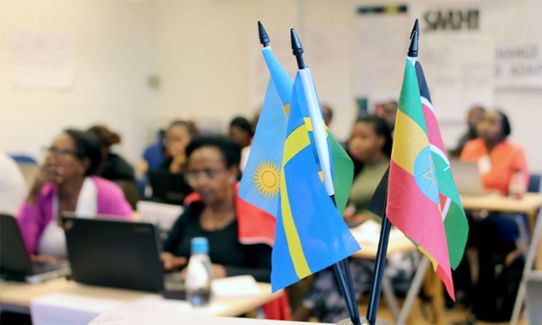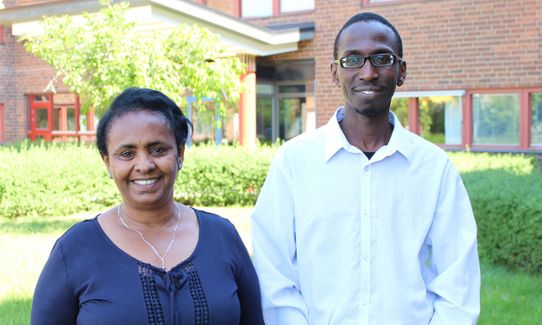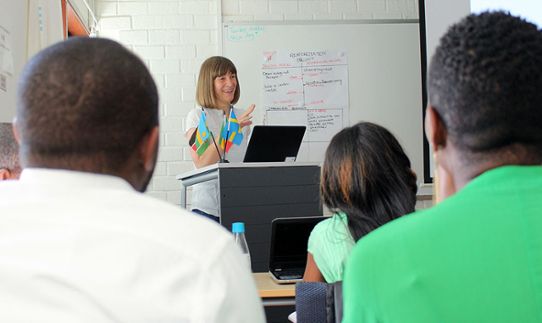This time the program session – the eighth in the series – started out in Nairobi in April and continued with an intensive three-week training period at SMHI in Norrköping. The days were filled with lectures, workshops, project work and several on-site study visits.

“Vitally Important Education for Developing Countries”
Belaynesh Birru Aragaw from Ethiopia is one of the participants. Birru - works for the Ethiopian Ministry of Water, Irrigation and Electricity where she is the director of the Environment and Climate Change Directorate.
“This is an extremely important educational program for developing countries. It will assist us in strengthening our capacity to enhance the implementation of our projects within the fields of climate change - Mitigation and adaptation. These have been really excellent lectures. The lecturers have extensive experience within their areas of expertise, and have conveyed their knowledge in a very capable manner. SMHI has identified our gaps and helped us fill them. This leads to development! We will be able to immediately use what we have learned here in our work. And that’s important,” comments Birru.

“I’ve learned really a lot here”
George Sanga Kavulunze is the Coordinator for the Kenya Water Partnership, where he is in charge of the organization’s ongoing programs. What the programs all have in common is that they have something to do with water and are focused on climate, urban planning, agriculture and energy. Among his many activities, he works with ”Transboundary Waters,” where several countries cooperate together concerning their water assets and how the existing water resources can be used in a more efficient manner.
“I have learned a great deal, and the combination of science and theory makes it easier to apply the knowledge in our activities back home. The panel discussion with the experts invited in was exceptionally interesting. There were many questions, and this opportunity enabled us to dig deeper into some subjects. The networking opportunities have also been good. The world is a global city and it is easier to make changes in your own country if one also works with people in other countries,” comments Sanga.
SMHI’s unique competence within four disciplines
The ITP courses are of course primarily for the participating countries, however they are also important for SMHI.
“This is a way for SMHI to be involved and to assist with attaining the 2030 objectives, via sharing our knowledge. At SMHI, our competence within the four disciplines – meteorology, hydrology, oceanography and climate – all gathered under one single roof, gives a comparative advantage that does not exist in other countries,” remarks Ghasem Alavi, who is the course coordinator at SMHI.
And Ghasem continues: “We have had a large number of interesting lectures, with lots of discussions following. The panel discussion with the invited experts was scheduled to last for only one hour, but it went on for two hours, as the participants were very engaged and had so many questions.

Closing session in Ethiopia
All the participants return home for now but the course does not end here. At home, the participants continue to work on their change projects, with a local advisor and mentor available to them for assistance. In November, there will be a follow-up meeting, most likely in Ethiopia.